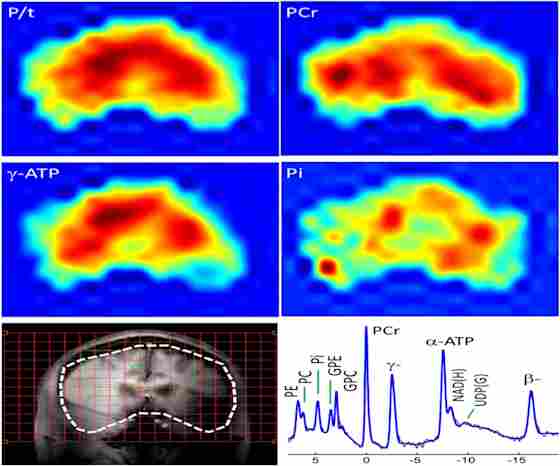Overview
This novel study shows that it is possible to measure phosphate brain energy metabolism (p-BEM) with precision at ultra high field magnetic strength in people across three groups: people with normal cognitive function, people with amnestic mild cognitive impairment (aMCI) and people with Alzheimer's disease (AD). This research team compared the three groups, looking for significant differences in the four brain regions (frontal, temporal, parietal, and occipital) and correspondence between the p-BEM markers and cognition.Findings, based upon forty-one participants who completed cognitive assessment and scan, suggest that p-BEM may be compromised in aMCI even before an AD diagnosis. This data should help future studies examine whether this brain energy crisis contributes to some of the earliest neuropathophysiologic changes in AD.
Figure 1. Whole-brain 31P MRS spectral displayed on coronal anatomical images. Total 31P signal from all metabolites; Color maps show the spatial distribution of specific metabolites.




